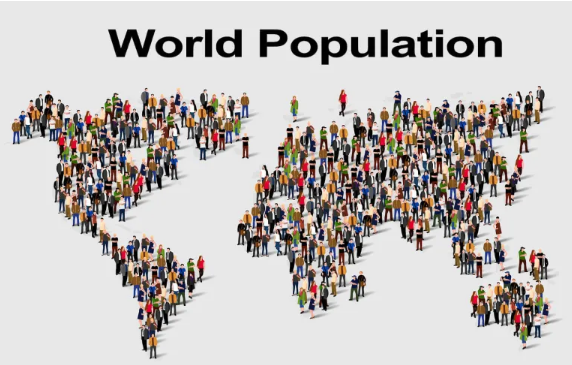A UN report has disclosed that Nigeria is now the world’s 6th most populous country.
With 216 million projected people in Nigeria, a United Nations Department of Economic and Social Affairs report has revealed that Nigeria is now ranked the sixth most populous country in the world.
Also: BREAKING: United Nations Give Goodluck Jonathan New Appointment
Newsonline reports that the report also revealed that the global population has reached an estimated 8 billion.
According to the report which was released yesterday to mark World Population Day, Nigeria in its new position now has about 2.7% of the global population.
While reacting to the new report, the Media Associate of the United Nations Population Fund (UNFPA) in Nigeria, Hajiya Kori Habib, in a statement, said the new population report revealed that “Asia and Africa drove much of that growth, expected to drive the next billion in 2037, while Europe’s contribution will be negative due to declining population.
“India, the largest contributor to the eight billion (177 million) will surpass China, the second largest contributor (73 million), while China in the next billion will be negative as the world’s most populous nation by 2023.
“Nigeria, the most populous nation in Africa, has a consistently high population growth rate.”
It was gathered that the global population is growing at its slowest rate since 1950, having fallen under 1 percent in 2020, while the latest projections by the UN suggest that the world’s population could grow to around 8.5 billion in 2030 and 9.7 billion in 2050.
The report also suggests that the world population is projected to reach a peak of around 10.4 billion people during the 2080s and to remain at that level until 2100.
The UN agency report stated that fertility has fallen in recent decades for many countries.
The report also revealed that “Today, two-thirds of the global population lives in a country or area where lifetime fertility is below 2.1 births per woman, roughly the level required for zero growth in the long run for a population with low mortality.
“The populations of 61 countries or areas are projected to decrease by 1% or more between 2022 and 2050, owing to sustained low levels of fertility and, in some cases, elevated rates of emigration.
“More than half of the projected increase in the global population up to 2050 will be concentrated in eight countries: the Democratic Republic of the Congo, Egypt, Ethiopia, India, Nigeria, Pakistan, the Philippines and the United Republic of Tanzania.
“Countries of sub-Saharan Africa are expected to contribute more than half of the increase anticipated through 2050.”






